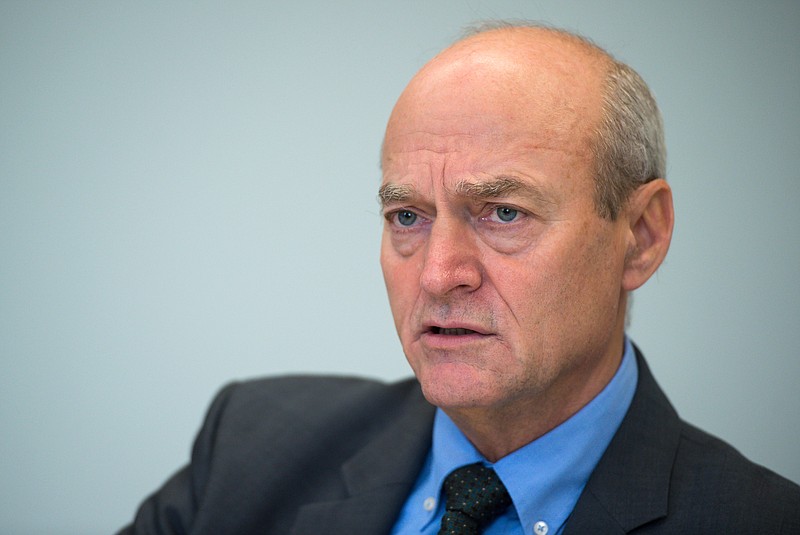BERLIN (AP) - Germany's spy chief is being replaced, Chancellor Angela Merkel's office said Wednesday, citing major upcoming "challenges" for the country's foreign intelligence agency.
Gerhard Schindler, who has led the Bundesnachrichtendienst, or BND, since 2012, will step down July 1, Merkel's chief of staff said Wednesday. Bruno Kahl, a senior official in the Finance Ministry, has been selected to replace him.
The move came as little surprise. Schindler had been caught up in a number of scandals including the revelation that his agency had for years failed to vet lists of eavesdropping targets it received from the U.S. National Security Agency. The targets have been reported to include European companies and government officials.
Schindler acknowledged the agency's mistakes to a parliamentary intelligence oversight committee last year, but warned that dragging details of the agency's failings into the limelight could jeopardize cooperation with Germany's allies.
The 63-year-old said BND staff only informed him about the questionable targets last year, three years into his job.
In December, Schindler's office took the unusual step of publishing a report on Saudi Arabia that suggested the Gulf kingdom's ties with regional allies could be endangered by the policies of its ambitious young defense minister. The report caused a diplomatic stir, with Germany's Foreign Ministry publicly distancing itself from the findings.
And last month a 32-year-old former BND employee was convicted of violating the country's official secrets law and sentenced to eight years in prison for providing classified information to the CIA and the Russians.
Merkel's office didn't give a reason for Schindler's early departure, saying only that it comes as the BND faces "major challenges that affect all areas of work" including a parliamentary inquiry into the NSA's activities in Germany and its cooperation with the agency, new security threats, the agency's move of most operations to Berlin, and an overall restructuring.
